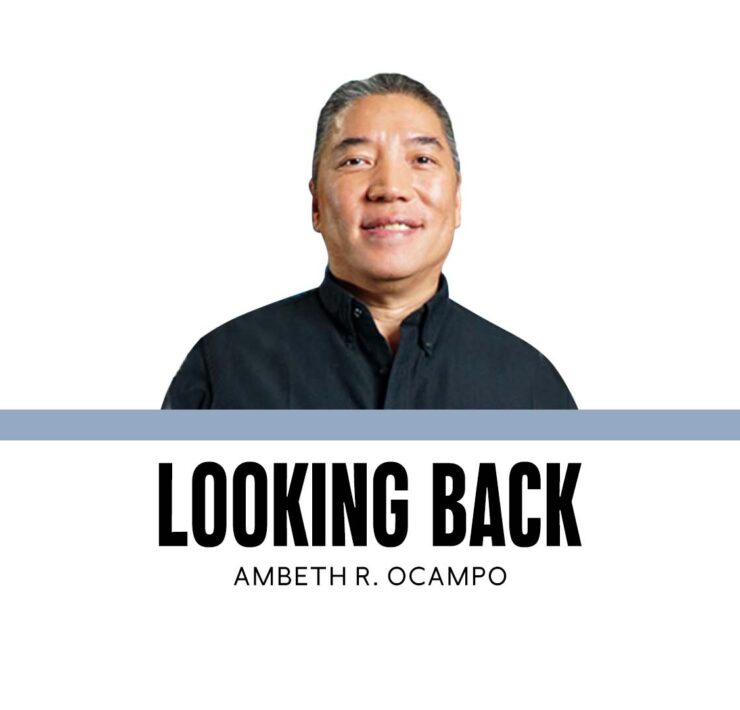Legislators reinventing the wheel

Back in 2009, I outlined an essay I wanted to write about Sen. Francis Escudero as a man beyond the clutches of history, which in its earliest origins, studied the past for lessons on leadership. Over a decade later, he ascended to the Senate presidency after losing a bid for veephood and showing little for it.
Nick Joaquin penned a classic account of how Ferdinand Marcos Sr. saved his Senate presidency by surreptitiously restarting the clock during a sine die session when the clock symbolically paused, thus gaveling the session closed when time started ticking. Similarly, who’d have thought Escudero could save his fellow senators from the burden of leadership by example by simply stopping the impeachment clock, restarting it only when it had to be paused again to await the 20th Congress?
A lot of back-and-forth is going on in lawyerly circles over whether what the Senate has done and is doing, and what the House did and intends to do, are legal. All of it stems from setting aside generations-old shared understanding and practices in favor of experimental ideas and redefining what used to be commonly understood. The Senate is being haughty because it has scarlet robes of office (not only unnecessary but counterproductive, as we shall see), which representatives acting as prosecutors don’t have—forgetting the House is the equal of the Senate not only before and after, but during, an impeachment. The Senate, ignoring the presumption of regularity, demands that the House justify its actions and compounds this by demanding any certification be published in the papers when it receives notifications from the House all the time.
Where could such puffed-up ignorance have come from?
It’s a generational thing. I once complained, in exasperation, to another senator (then a congressman, and now in the Cabinet) how it was a betrayal of deeply held parliamentary practice to allow the police—who are, after all, under the command of the executive—onto the premises of House (they lined the path to the rostrum in the session hall during one State of the Nation Address). It was, I said, what we inherited from the refusal of the British to ever allow the agents of the monarchy to try to arrest their members as Charles I did, in person, helping to ignite their civil war. The then-congressmen shrugged it off as, oh well, ancient history—but it’s not.
The force of custom can and should be as strong as the force of law because it tempers behavior and fosters an institutional and not egotistical approach. When tradition, or custom, is neither learned nor applied, it removes the obstacles to officials behaving like petty tyrants or spoiled children. Returning to those robes, and the accompanying grandeur of the title, “senator-judge,” it was a conscious choice that sadly set aside the far nobler, not only it is infinitely rarer but more democratic, title (if they really needed one) of “senator-juror,” which is what senators really are when conducting an impeachment trial.
But as jurors, they’d need to do two things difficult for the elected to do: exercise common sense (and common decency) and listen. Senator-elect Vicente “Tito” Sotto, who has been engaging in a passive-aggressive running commentary of Escudero’s moves, recently made two wise observations. First, “presiding over a collegial body does not require being a lawyer. Familiarity with parliamentary procedure, experience, fairness, and good faith are enough. I had been in impeachment trials before. Adherence to the Philippine Constitution, our laws and rules are within the understanding of a Filipino citizen. Plain and simple language needs no interpretation from a lawyer.” Second, “Sen. Miriam, who was a former RTC judge taught me … in the 11th Congress sen[ator] judges can only ask questions for clarifications.”
To adopt the more humble demeanor of a juror rather than the lofty surety of a judge, will serve as a reminder that since impeachment is a political and not a judicial exercise, when senators are called to render an emergency judgment on the continuing fitness for office of someone elected, they, as elected officials, are being judged, too. For they sit before the bar of public opinion, which is judging, in real time, whether the public’s expectation of basic fairness is being met or not. Doubt it? Recall 2001, and the fate of the senators who never recovered from their loss of public trust.
Our institutions are heirs of other institutions; their experience is part of ours. To ignore it results in what we have: the kind of passive-aggressive contest taking place between the leadership of the House and that of the Senate warping the institutions to which they belong.


















Children will suffer more under climate crisis